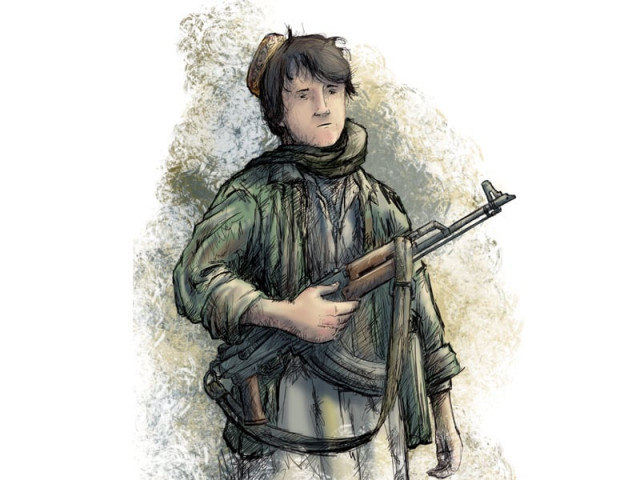Poverty breeding extremism in tribal areas
Research analyses public view on conflict and war on terrorism and its impacts.

Poverty breeding extremism in tribal areas
A sense of deprivation and poverty are responsible for extremism and radicalisation in the tribal areas. There is need to address their socio-economic problems and empower them economically and politically by including them in legislation and consultation process of policy making.
This was the crux of a seminar organised by the Fata Research Centre (CRC) for the launch of a research report titled, “Extremism and Radicalisation: An Overview of the Social, Political, Cultural and Economic Landscape of FATA” here on Tuesday, said a press release issued by the centre.
The report was aimed at seeking public view on conflict in Afghanistan and war against terrorism and extremism in Fata. Further, it zeroed in on the social, political, cultural, economic, infrastructure and gender issues among communities to determine the factors that lead to the spread of extremism in the region.
For the study, some 200 interviews were conducted while 2,000 survey forms were distributed amongst the participants from the seven agencies of Fata and the six frontier regions (FRs). A majority (72%) of the research respondents were aged 22 to 50 years, followed by 17% aged 16 to 21 years, while 11% of the participants were aged 50 or above.
The study reveals that after the invasion of Afghanistan in 2001 by NATO, and its spread to the Fata region in 2003, different views emerged on extremism and radicalisation. There is a consensus on resting focus on youth to harness peace and development activities in the region as a large number of people (89%) stressed the importance of youth role in bringing prosperity to the region.
Unemployment among the youth is one of the key socio-economic issues of the area that ultimately finds linkages with issues like insecurity and extremism. Among the respondents, 67% totally and 11% partially, were of the view that youth did not have adequate employment opportunities.
About peace and security, 53%, reported concerns over the persisting security situation in the region, while another 25%, also partially agreed that the peace and security situation is comparatively worse than in the rest of the country, while 20% contrasted the statement.
Majority (61%) of the people reflected that empowerment of women through provision of health and education facilities is imperative for development. The view is contrasted by some 24% who see no role of women in development; the remaining partially either agreeing or disagreeing.
However, the reflection on empowerment was relative with tribal traditions in which women are exclusively treated and their mixing with male counterparts is highly discouraged.
More than three-quarter (76%) of the respondents were of the view that the activities of political parties need to be enhanced in their areas. Only 20% among the respondents disagreed on the extension of political party activity in Fata, while 4% of respondents were unable to present their view on the matter.
About 94% of respondents considered poverty a major issue of the area. Only 3% of respondents who do not mull over poverty as a major problem, while 1% who did not respond.
Majority of the respondents (68%) see no improvement in economic stipulation of their areas, while a fraction of respondents believe that the economic conditions have been improved during the past five years.
Majority among the respondents (81%) noted existence of corruption and misuse of power by government officials and only 14% among the respondents denied the notion.
Published in The Express Tribune, July 18th, 2012.













COMMENTS
Comments are moderated and generally will be posted if they are on-topic and not abusive.
For more information, please see our Comments FAQ